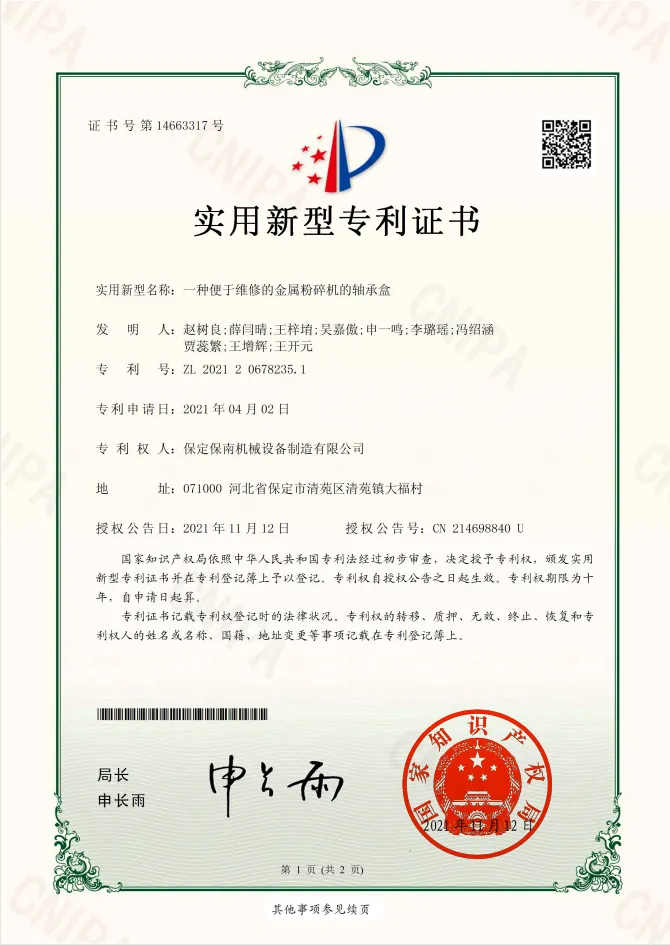

dets. . 07, 2024 07:54 Back to list
The Importance of Shredding Aluminum Cans A Sustainable Approach
In today’s environmental landscape, the efficient recycling of materials has become a priority for both manufacturers and consumers. One particular material that poses challenges and opportunities alike is aluminum, especially in the form of cans. With the consumption of beverages contained in aluminum cans on the rise, the importance of shredding aluminum cans has become more critical than ever. This article delves into the myriad benefits of shredding aluminum cans and its pivotal role in sustainable recycling practices.
The Process of Aluminum Can Recycling
Before we can understand the significance of shredding, it’s essential to grasp the overall recycling process of aluminum cans. Once collected, these cans are transported to recycling facilities where they undergo cleaning and sorting. The next critical step involves shredding, which is the act of breaking down the cans into smaller pieces. This shredding process is vital because it enables more efficient processing in subsequent manufacturing stages.
Shredded aluminum can be melted down at lower temperatures compared to whole cans, resulting in significant energy savings. In fact, recycling aluminum saves about 90% of the energy required to produce new aluminum from raw materials. By shredding cans before melting, recyclers can achieve a more uniform product, ensuring better quality and reduced emissions during the melting process.
Benefits of Shredding Aluminum Cans
1. Energy Efficiency As previously mentioned, shredding aluminum before the melting process dramatically lowers energy consumption. This not only minimizes operational costs for recycling facilities but also contributes to a lowered carbon footprint, aligning with global goals for reducing greenhouse gas emissions.
2. Space Optimization Shredded aluminum occupies less space than whole cans, making it easier and more economical to transport. This efficiency leads to cost savings for recycling companies, allowing them to process greater volumes of material without requiring proportional increases in space or resources.

3. Enhanced Recycling Rates By shredding aluminum cans, recycling facilities can separate contaminants and impurities more effectively. This leads to a higher purity level in the recycled aluminum, which is essential when manufacturing new products. Manufacturers are more likely to purchase recycled materials when they meet quality standards, thereby driving greater demand for recycled aluminum.
4. Resource Conservation The staggering statistic that aluminum can be recycled indefinitely without losing quality makes it a perfect candidate for sustainable practices. Shredding cans supports this loop by ensuring that recovered aluminum is reintegrated efficiently into the production cycle. This not only conserves natural resources but also helps minimize waste in landfills.
5. Job Creation The recycling industry, particularly in shredding operations, creates numerous job opportunities. As more facilities become specialized in processing aluminum cans, there are increased employment avenues in sorting, shredding, transporting, and managing recycled materials.
Community Involvement and Education
While the recycling process is vital, community involvement is equally essential. Public education on the significance of recycling aluminum cans and the shredding process can enhance participation in recycling programs. Many consumers are unaware of the critical role they play in the life cycle of aluminum products. By informing the community about how proper disposal can lead to shredding and recycling, we can boost recycling rates and foster a culture of sustainability.
Conclusion
In essence, shredding aluminum cans is a crucial step in the recycling process that facilitates energy conservation, space optimization, improved recycling rates, and overall resource conservation. As global demand for sustainable practices increases, the role of shredding in the recycling of aluminum cans cannot be overstated. By adopting better recycling habits and advocating for efficient processes, we can all contribute to a more sustainable future, ensuring that aluminum cans continue to be recycled and repurposed for generations to come.
Latest news
Troubleshooting Common Eddy Separator Problems
NewsJul.04,2025
The Role of Metal Recycling Plants in Circular Economy
NewsJul.04,2025
The Impact of Recycling Line Pickers on Waste Management Costs
NewsJul.04,2025
Safety Features Every Metal Shredder Should Have
NewsJul.04,2025
How Industrial Shredders Improve Waste Management Systems
NewsJul.04,2025
How Cable Granulators Contribute to Sustainable Recycling
NewsJul.04,2025